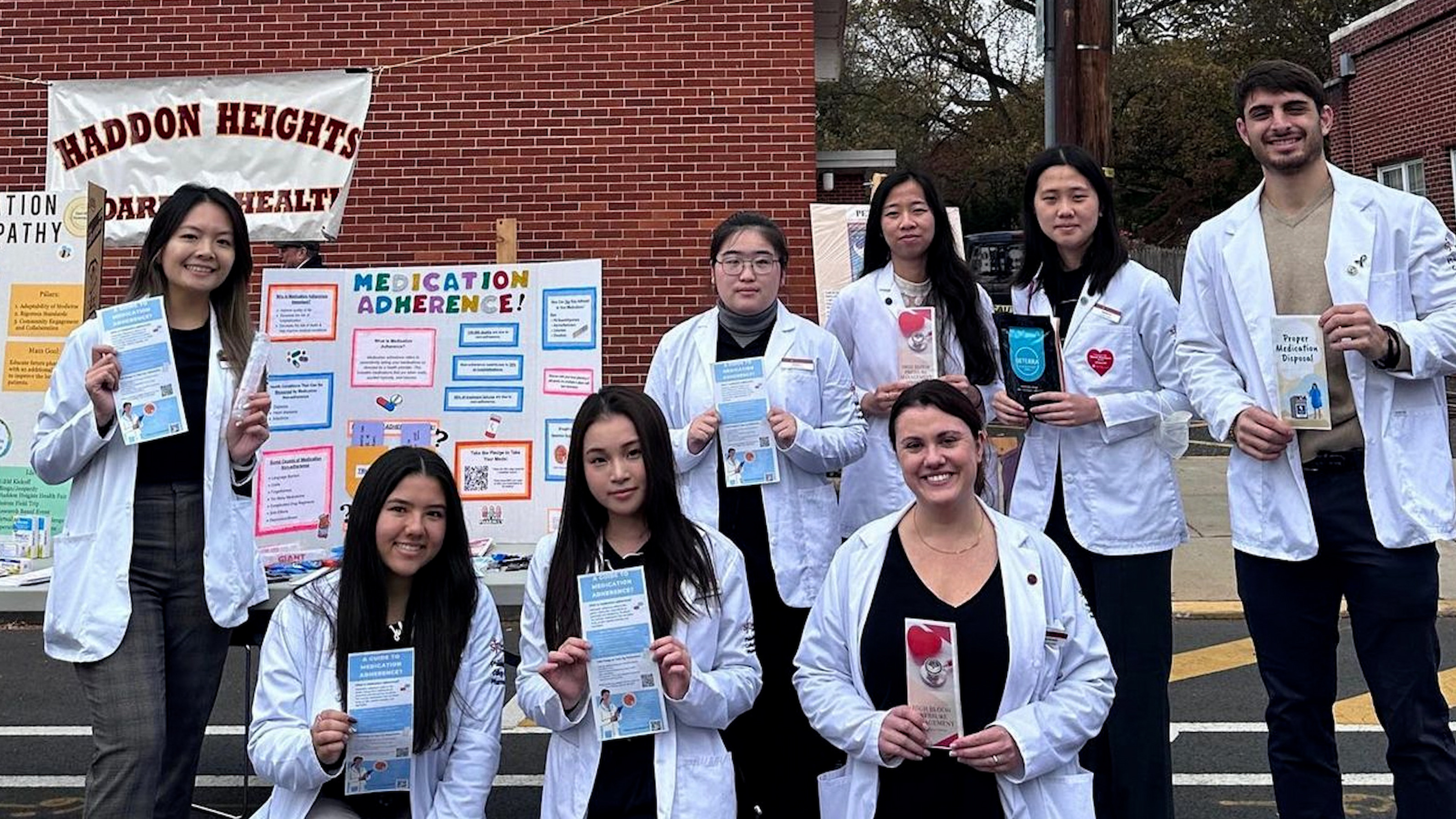Saint Joseph’s PA Students are Smashing the Stigma Around Substance Use Disorder
Saint Joseph’s physician assistant students are offered training that enables them to prescribe heavily regulated medication to patients with opioid use disorder.

According to the city of Philadelphia, the number of deaths from drug overdose is currently higher than the number of deaths from homicide. One of the city’s strategies for responding to this crisis is partnering with providers to improve access to medications for opioid use disorder (MOUD). The problem is, MOUDs are heavily federally regulated and, until recently, were not able to be prescribed by a variety of providers with prescribing privilege.
Recently, federal restrictions were eased to allow physician assistants (PAs) and nurse practitioners to prescribe buprenorphine, a therapeutic agent used to assist those with opioid use disorder (OUD) to safely access evidence-based treatment.
By giving individuals access to MOUDs and other necessary services, PAs can help them achieve stable recovery, improved treatment outcomes and lower their risk for overdose.
Saint Joseph’s School of Health Professions has been working in partnership with the Philadelphia College of Pharmacy to offer Medical-Assisted Treatment (MAT) training for its physician assistant (PA) students. MAT training ultimately enables PA program graduates to apply for a waiver allowing them to prescribe buprenorphine.
This training is funded by a three-year grant from the Substance Abuse and Mental Health Services Administration (SAMSHA) — a federal agency that aims to reduce the impact of substance abuse and mental illness on America's communities.
George Downs, PharmD, Linwood F. Tice Professor of Pharmacy, and Allison Williams, MSPAS, PA-C, assistant professor of physician assistant studies, are responsible for making this training as enriching as possible — tying in education and preparation for dealing with clients who may be experiencing substance use disorder (SUD).
“We’re losing around 100,000 people a year to overdoses,” says Downs. “Now that PAs and nurse practitioners can prescribe buprenorphine for them, they can make up for the lot of providers who just don’t want to deal with this population of patients — they can be very difficult and there’s a stigma that can lead to biases.”
At times, PAs and other practitioners like physical and occupational therapists might see patients who have come into their treatment as a result of injuries they suffered while under the influence. It can be difficult to navigate prescription recommendations for this population — because of their illness, there is an involved screening and interview process that must take place before medication can be prescribed. Patients with SUD often struggle to access treatment due to the stigma surrounding their disorder and the time involved in creating their individual care plans.
By training the PAs to identify SUD as a serious illness and prescribe medicine accordingly, they gain the ability and perspective to treat these patients free from stigma.
“You have to change your whole mindset toward dealing with this population,” remarks Downs. “It's very hard to do because they can be very challenging to deal with. Success might look a little different for them than it would in a regular patient.”
Students in the MAT training program go through a total of 24 hours of instruction focused on treatment for patients with SUD. This can include training modules that teach students how to identify SUD and what can be done to help treat these patients, or guest speakers who have experience with SUD firsthand. Students also spend time in treatment facilities observing as professionals treat patients with SUD.
“One of my goals in PA training in general is to make sure my students understand the socioeconomic side of medicine and all the barriers to care that are out there,” says Williams. “That’s one of my favorite aspects of this MAT training — students gain an understanding of how difficult it is to access treatment if you fall into a certain category.”
Another way SUD can be stigmatized in provider-patient relationships is through language. Using terms like “addict” or “junkie” can significantly affect the connection made between a practitioner and their patient.
“We can teach science all we want but teaching that attitude — just making sure that these students know what qualifies as appropriate terminology — that’s what is going to make the difference when they’re interviewing these patients,” notes Williams. “And it’s not just among health providers, either. Sometimes, a patient might even refer to themselves using these derogatory terms — an act that can be a barrier to care in and of itself. It’s so multifactorial.”
Last year, 38 students graduated from the PA program with MAT training and this coming May, another 35 PA students with MAT training are due to graduate.
Learn more about Saint Joseph’s physician assistant program.



